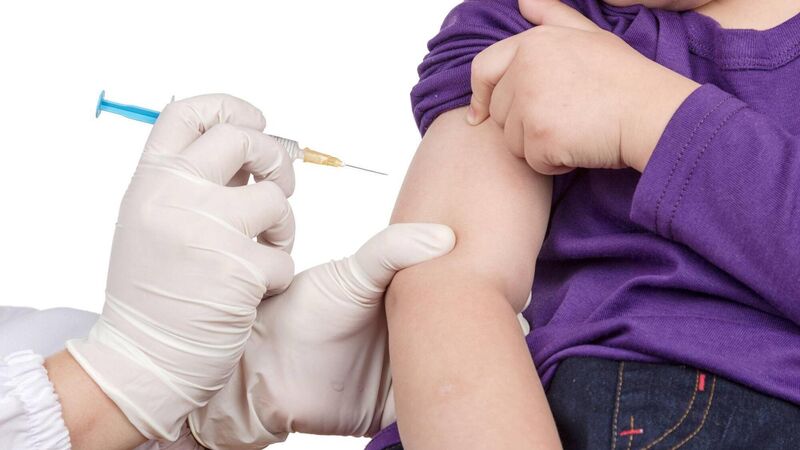Parents urged to ensure children are up to date with MMR vaccine amid rise in measles cases

Two doses of the vaccine are recommended to be considered fully vaccinated.
Parents are being urged to make sure children and young people are up to date with their MMR vaccine due to a rise in cases in parts of the UK and Europe.
Measles can be a potentially serious and highly infectious disease that can spread easily through respiratory droplets.
Michael Hanrahan, Specialist Registrar in Public Health Medicine, who is based at St. Finbarr’s Hospital, said that while there hasn't been a case reported in Ireland in some time, a rise in cases abroad is prompting concerns.
“We’re seeing measles cases throughout Europe, and increasingly in the UK.
“Thankfully, we haven’t had a case since 2018 in Ireland,” he said, but added that they are worried about having cases here shortly and it spreading, saying “It’s a highly contagious infectious disease, and it can be severe in young children and other vulnerable people.”
The MMR vaccine protects against measles, mumps and rubella, and uptake in Ireland has declined significantly since the beginning of the pandemic, now sitting below 90%, lower than the World Health Organization target of 95%.
Dr Hanrahan explained some of the potential reasons that vaccination levels have dropped, saying “Covid definitely had an impact on people accepting vaccines".
He added: “They might have thought that they had less access to get them from GPs or less of a need because of lockdown, as they were socialising less they thought that they didn’t need to get it.”
The Covid pandemic also led to an increase in misinformation spread about vaccines, which he referred to as “a complex issue,” saying, “I think that a lot more vaccine misinformation was circulated when the Covid vaccine came out and some of that may be affecting MMR uptake.
“There are also long-standing misinformation about the vaccine being linked to autism and bowel issues but those have been disproven.
“Personally, I see more hesitancy than outright refusal. Parents seem to want to wait until they have done more research themselves or until their child is a bit older before accepting the vaccine.
“But we need to reiterate that the vaccine is safe, effective and is recommended at 12 months of age because that is when their child is most vulnerable so it is important to get the vaccine on time.”
Despite these factors, Dr Hanrahan says “most people are getting the vaccine, the uptake rate is still pretty high, it’s just below target,” and encouraged people to check immunisation.ie for more information on the vaccine.
With the mid-term break coming up, it is particularly important that anyone travelling to the UK ensures they have received the right number of MMR vaccines for their age, with two doses recommended to be considered fully vaccinated.
The first dose is given when a child is 12 months old, and the second dose is due when a child is in junior infants.
The HSE says it is important to get this first MMR on time at 12 months and not delay because measles is more severe in young children.
If anyone isn’t sure about their or their child’s vaccination status, they are encouraged to contact their GP so that they can check the regional immunisation office and department of health records, Dr Hanrahan said, adding that for anyone vaccinated outside this region, it is possible to check immunity with a blood test.
Some people can’t get the MMR vaccine, for example, if they are pregnant, have an allergy to any of the ingredients, or are severely immunocompromised, meaning they rely on herd immunity to stop the spread of the disease.
These restrictions only apply to a small part of the population, Dr Hanrahan said, stressing that “the vast majority of people are able to take the MMR vaccine.”
The HSE is also urging parents to be aware of the symptoms – fever, cough, runny nose, or the characteristic red rash, which typically starts on the head and neck, then spreads down – and to contact their GP by phone for advice if they see them.
Maintaining good hygiene practices is also essential, it says, as measles is spread through respiratory droplets, so habits such as hand washing and avoiding touching face, eyes and nose are very important.










 App?
App?


